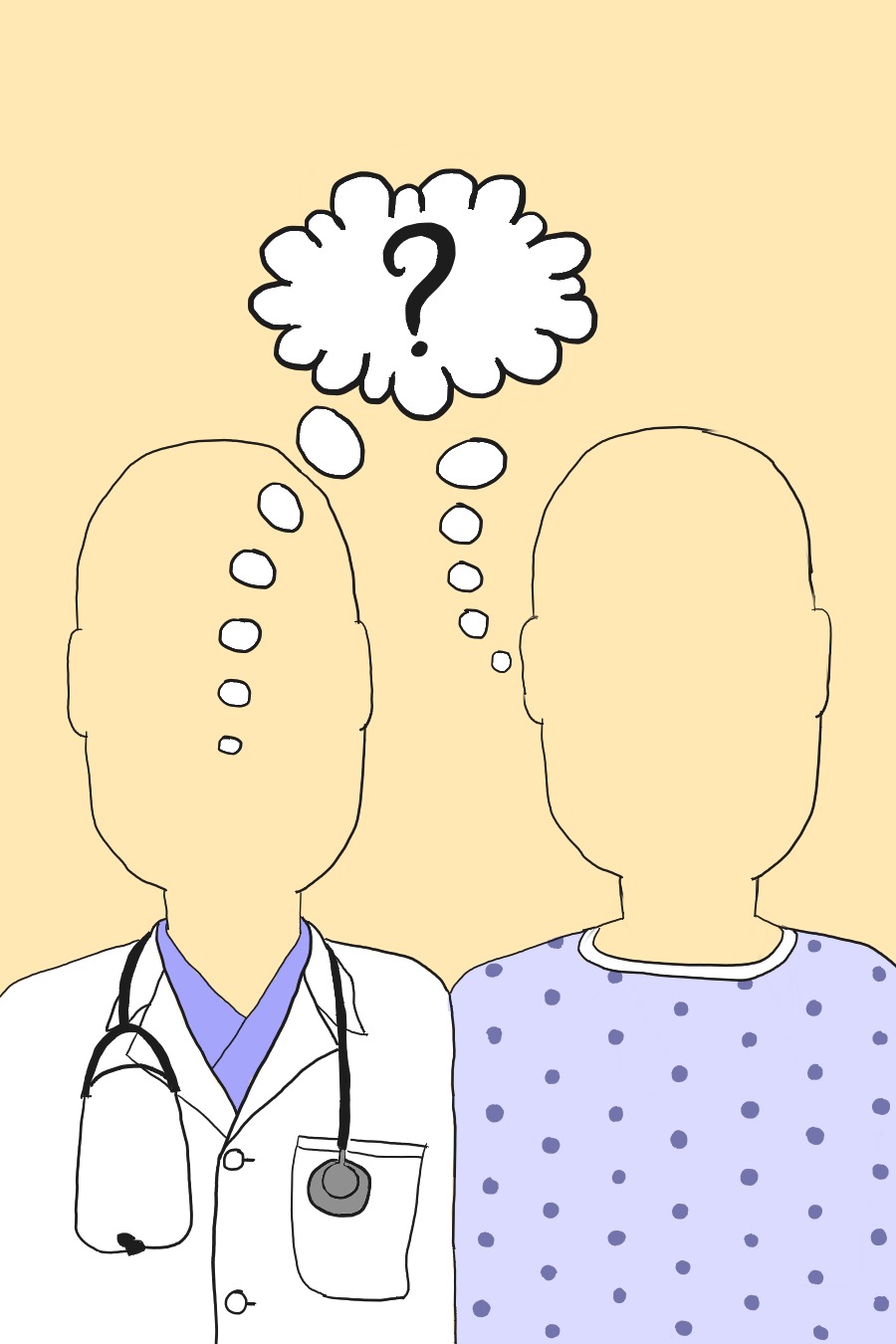COVID-19 Patient Education: Multimedia Intervention to Improve COVID-19 Health Literacy
by Tavis Taylor

Do education video brochures improve health literacy and understanding of COVID-19 in neurosurgery patients?
Pittsburgh, PA United States COVID-19 Medical Education Prevention WarOnCOVID challengeAbout our project
The problem we solve: The U.S. Department of Education studied the health literacy levels among American adults and provided that 12% were proficient, 53% were intermediate, 22% were basic, and 14% were below basic. In addition, it has been shown that the average American adult reads at approximately a 7th to 8th grade level. Based on this, AMA, NIH, and the United States Department of Health and Human Services (USDHHS) advocate for patient education materials to be written at no greater than a 6th grade reading level. Past studies have shown that to increase health literacy on a particular diagnosis and facilitate informed decision making. This project aims to address these discrepancies in neurosurgery patients regarding COVID-19.
About our solution: It's important that patients and physicians share similar goals and expectations in regards to patient health. This leads to more informed decision making in prevention, intervention, and therapy of a disease. Due to limited time with knowledgeable health professionals, patients may seek outside resources on a disease. These outside resources may be beyond their comprehension or they may even provide misinformation. Our solution is to include a user-friendly informational multimedia device to improve patient health literacy in regards to the infectious disease, COVID-19.
Progress to date:
We have proven in the pilot study, "Patient Education and Engagement Through Multimedia; Prospective Pilot Study on Health Literacy in Patients with Cerebral Aneurysms", that an iPad as a multimeia learning tool, may have impact on improving patients' knowledge of a disease in a clinical setting. We hypothesize that a more engaging tool, video brochures, will further improve health knowledge of COVID-19 in neurosurgery patients during their clinical visits.
About Our Team

Creator: Tavis Taylor
Location: Pennsylvania
Education: University of Pittsburgh
Bio: Tavis Taylor has been a part of the research team since the beginning of 2018. He shifted gears towards research after completing his undergraduate program at the University of Dayton, majoring in English with a minor in Biology. During his time with the lab, he has contributed to numerous research projects and continues to work closely with others to advance the field.
Hospital Affiliation: University of Pittsburgh Medical Center Department of Neurological Surgery
Title: Researcher
Advanced Degree(s): B.A.
About Team Members
Nitin Agarwal
Neurosurgeon, M.D.
Biography: Nitin Agarwal, MD, joined the University of Pittsburgh Department of Neurological Surgery residency program in July of 2014. Prior to matriculating into the residency program, Dr. Agarwal received his doctorate of medicine from Rutgers New Jersey Medical School.
Title: Neurosurgeon
Advanced Degree(s): M.D.
Twitter:
@NitinAgarwalMD
Megan Rode
Researcher, B.S.
Biography: Megan Rode joined the team in 2020. She completed her undergraduate degree at the University of Pittsburgh, where she majored in Natural Sciences with a Neuroscience concentration. Megan has worked on multiple research projects with a basic science focus on spinal cord injury over the past 4 years.
Title: Researcher
Advanced Degree(s): B.S.
About Our Company
Patient Education Research Collaboration
Location: N/A
Pittsburgh, PA N/A
US
Founded: 2019
Product Stage: Idea
Employees: 3-5
How We Help Patients
It's important that patients and physicians share similar goals and expectations in regards to patient health. This leads to more informed decision making in prevention, intervention, and therapy of a disease. Due to limited time with knowledgeable health professionals, patients may seek outside resources on a disease. These outside resources may be beyond their comprehension or provide misinformation. This technology will potentially lead to proper shared decision-making and self advocating for patient regarding their health. In turn, patients will lead longer and healthier lives by being properly informed about COVID-19 virus and taking proper measures to help reduce the spread of the infectious disease.How We Help Physicians
It is important for a physician that patients have a good understanding of any diseases they may be diagnosed with or vulnerable to. Especially in highly contagious diseases such as the COVID-19 virus. However, inadequate healthcare-oriented educational resources may lead to poor understanding and lower patient health advocacy. With the implementation of this technology, patients will be able to make more educated decisions in regards to their health. This will alleviate some of the burden that physicians and other healthcare providers face in reaching the best decision possible in regards to a patient's health, and it would potentially lower infection rates resulting in less encumbered clinics with lower patient traffic.How We Help Hospitals
Our innovation will potentially lower infection rates and spread of the disease by increasing patient health literacy and therefore health advocacy. With proper information about COVID-19 virus that is screened for literacy comprehension levels and physician approved medical descriptions, patients will be more informed on how to properly social distance, disinfect surfaces, and carry out proper hygienic strategies. This will potentially lower infection rates leading to less encumbered facilities as well as less inquiries on informational resources regarding the COVID-19 virus.How We Help Partners
Our potential partners include hospitals and outpatient clinics throughout the United States. Hospitals will have a useful tool to present to their patients either affected by the virus, or those who have a relation to someone who was affected. It will provide a device already proven to be effective in presenting factual and comprehensive information that will educate patients. The information presented on the multimedia device also addresses patients with a wide range of literacy levels and therefore leads to higher comprehension rates. This could potentially save hospitals thousands in resources by alleviating phone calls, patient visits, and other forms of inquiries that potentially takes up physicians and other healthcare providers' time.Challenge Mission
COVID Problem We Address
Our company plans on solving patient education and health literacy involved with the COVID-19 virus. With our devices, caregivers, providers and patients can be ensured that they will be receiving truthful information that answers their questions involving different aspects of COVID-19 virus. This is particularly useful now, especially so with so many resources that are accessible to patients which may or may not provide factual information. This device will only benefit healthcare providers and patients, for it will provide comprehensive informational copy and video that addresses patients with difference levels of health literacy.
Our COVID Solution
Our COVID-19 health literacy video brochure presents a user-friendly interface that provides necessary information for understanding the COVID-19 virus. It presents factual information addressing symptoms, details regardin disease spread, and treatment methods, all of which are constructed to address patients with a wide range of literacy levels.
Innovation Details
Intellectual Property Summary
We plan to be the sole possessors of the intellectual property until the technology is proven to be effective through our research. Upon funding and implementation of our research, will will convert our findings and apply for a provisional patent.
Clinical Information
Our research team has conducted a pilot study in the past "Patient Education and Engagement Through Multimedia; Prospective Pilot Study on Health Literacy in Patients with Cerebral Aneurysms" showing that the use of multimedia devices is effective in improving health literacy of patients regarding their diagnosis of cerebral brain aneurysms. However, we believe that video brochures are more user-friendly and will be more effective in educating patients on a particular disease, in this case the COVID-19 virus.
Regulatory Status
This product will not require FDA clearance.
How we will use the funds raised
Total Funding: $5,000
Purchase of video brochures for study to administer to neurosurgery patients during visit - $2,500
Video production and media cost- $1,500
Patient surveyor and coordinator - $1000
Thank You
We are a research collaborative team that is driven by the needs of our patients and we continue to push forward our scientific research to improve their lives within the field of neurosurgery. We have a particular interest and investment in patient education, and believe properly educating our population and increasing health literacy in our society will improve overall heatlh. We want to take our passion in patient education and focus it on the war on COVID-19 in order to educate our patients and potentially reduce infection rate and improve health outcomes of those that participate in patient education intervention.
Updates
No updates found .
Supporters
Help us find best new ideas to fund by telling us what you think. Your feedback goes straight to the team behind this project in private, so tell them what you really think.
Index Score
19
Score
0
Score
1
Likes0
Partners0
Pilots0
Follows-
This campaign has ended but you can still get involved.See options below.
Help us find best new ideas to fund by telling us what you think. Your feedback goes straight to the team behind this project in private, so tell them what you really think.


